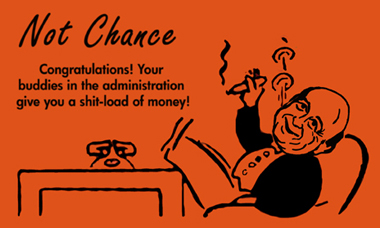
WASHINGTON – The Senate Permanent Subcommittee on Investigations released several exhibits that will be among those discussed on Tuesday at the fourth of its hearings on the causes and consequences of the financial crisis.
Using Goldman Sachs as a case study, the April 27 hearing will focus on the role of investment banks in contributing to the worst U.S. economic crisis since the 1930s, resulting in the foreclosure of millions of homes, the shuttering of businesses, and the loss of millions of American jobs. The Subcommittee, whose Chairman is Sen. Carl Levin, D-Mich., and whose Ranking Republican is Sen. Tom Coburn, R-Okla., has conducted a nearly year and a half investigation into the 2008 financial crisis.
“Investment banks such as Goldman Sachs were not simply market-makers, they were self-interested promoters of risky and complicated financial schemes that helped trigger the crisis,” said Sen. Levin. “They bundled toxic mortgages into complex financial instruments, got the credit rating agencies to label them as AAA securities, and sold them to investors, magnifying and spreading risk throughout the financial system, and all too often betting against the instruments they sold and profiting at the expense of their clients.” The 2009 Goldman Sachs annual report stated that the firm “did not generate enormous net revenues by betting against residential related products.” Levin said, “These e-mails show that, in fact, Goldman made a lot of money by betting against the mortgage market.”
The four exhibits released today are Goldman Sachs internal e-mails that address practices involving residential mortgage-backed securities and collateralized debt obligations (CDOs), financial instruments that were key in the financial crisis.
Goldman Sachs Chairman and Chief Executive Officer Lloyd Blankfein and other current and former company personnel are scheduled to testify at Tuesday’s hearing.
In one of the e-mails released today, Mr. Blankfein stated that the firm came out ahead in the mortgage crisis by taking short positions. In an e-mail exchange with other top Goldman Sachs executives, Mr. Blankfein wrote: “Of course we didn’t dodge the mortgage mess. We lost money, then made more than we lost because of shorts.”
In a second e-mail, Goldman Sachs Chief Financial Officer David Viniar, who also will testify on Tuesday, responded to a report on the firm’s trading activities, showing that – in one day – the firm netted over $50 million by taking short positions that increased in valued as the mortgage market cratered. Mr. Viniar wrote: “Tells you what might be happening to people who don’t have the big short.” Levin said: “There it is, in their own words: Goldman Sachs taking ‘the big short’ against the mortgage market.”
In a third e-mail, Goldman employees discussed the ups and downs of securities that were underwritten and sold by Goldman and tied to mortgages issued by Washington Mutual Bank’s subprime lender, Long Beach Mortgage Company. Reporting the “wipeout” of one Long Beach security and the “imminent” collapse of another as “bad news” that would cost the firm $2.5 million, a Goldman Sachs employee then reported the “good news” – that the failure would bring the firm $5 million from a bet it had placed against the very securities it had assembled and sold.
In a fourth e-mail, a Goldman Sachs manager reacted to news that the credit rating agencies had downgraded $32 billion in mortgage related securities – causing losses for many investors – by noting that Goldman had bet against them: “Sounds like we will make some serious money.” His colleague responded: “Yes we are well positioned.”
Prior hearings of the Subcommittee have looked at how high risk lending strategies, bank regulatory failures, and inflated credit ratings contributed to the financial crisis. Next Tuesday’s hearing examining the role of investment banks will be the final hearing in the quartet of hearings on “Wall Street and the Financial Crisis.”
The hearing will begin at 10:00 a.m. in room 106 of the Dirksen Senate Office Building.
4closureFraud
Confidential Treatment Requested by Goldman Sachs

Goldman a case study… Where do I sign up as a “case study” representing generational theft.